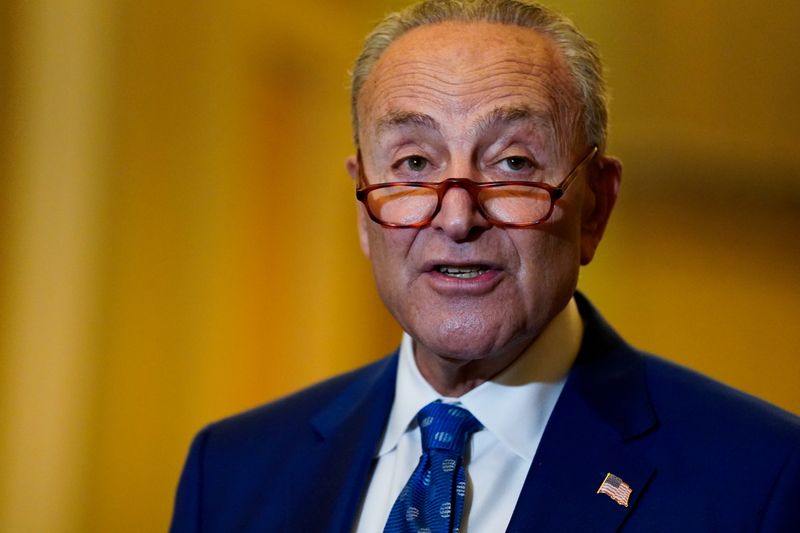By David Shepardson
WASHINGTON (Reuters) - U.S. Senate Democratic Majority Leader Chuck Schumer's plan to attach a measure to boost U.S. competitiveness with China to a massive defense policy bill faces new hurdles in Congress.
The Senate in June passed the U.S. Innovation and Competition Act (USICA), which includes $52 billion to dramatically increase U.S. semiconductor chip production and authorizes $190 billion to strengthen U.S. technology and research. But the bill never received a vote in the House of Representatives, and supporters have been working for months to find a way to pass it and get it signed into law.
Schumer said Tuesday he hopes to include USICA as part of the annual National Defense Authorization Act (NDAA) that will be put on the Senate floor Wednesday.
"The chip shortage is not some abstract issue – it’s impacting the daily lives of Americans," Schumer said. "Cars, refrigerators and other household appliances require chips. Supply shortages means Americans are left waiting a long times for these essentials."
But Senator Bernie Sanders, who caucuses with the Democrats, on Tuesday criticized the chips proposal, calling it "corporate welfare, with no strings attached, for a handful of extremely profitable microchip companies."
House Majority Leader Steny Hoyer said Tuesday he thinks the House should pass its own version of USICA first "and then we can have a conference with the Senate."
Senator Mark Kelly, also a Democrat, noted the United States relies largely on imported semiconductors. "This plan has sat idle," Kelly said. "There is no more time to waste on this."
In the evenly divided Senate, every Democratic vote is critical.

Once the Senate approves its version of NDAA, Senate and House negotiators will work on a compromise.
U.S. Commerce Secretary Gina Raimondo told Reuters in an interview last week that the administration was pushing hard to win USICA approval. "It has to happen by the end of this year. It's essential," Raimondo said.